Quick Search - Connect With Local Naturopaths - Find A Naturopath Near You

Dr. Rahima Hirji ND
 17 Year(s) Of Practice
17 Year(s) Of Practice
 Kitchener, Cambridge, Toronto, Sauble Beach
Kitchener, Cambridge, Toronto, Sauble Beach
 3093 Profile Visits
3093 Profile Visits
Dr. Rahima Hirji is a licensed naturopathic doctor with 16 years of experience, dedicated to supporting individuals through various health challenges. She graduated from the Canadian College of Naturopathic Medicine Read More

Empowering individuals to achieve vibrant health and lasting wellness through personalized, science-based naturopathic care. My mission is to educate, inspire, and support patients on their journey to optimal health by addressing root causes, promoting sustainable lifestyle changes, and providing safe, effective, and natural solutions.

Dr. Rahima Hirji ND
 17 Year(s) Of Practice
17 Year(s) Of Practice
 Kitchener, Cambridge, Toronto, Sauble Beach
Kitchener, Cambridge, Toronto, Sauble Beach
 3093 Profile Visits
3093 Profile Visits
Dr. Rahima Hirji Supports
Perimenopause & Menopause
Acne & Skincare
Fertility & Pregnancy
Services By Dr. Rahima Hirji
Bioidentical Hormone Replacement Therapy (BHRT)
IV Therapy
Desiccated Thyroid
Reviews
Education & Associations

Education
Ontario Association Of Naturopathic Doctors (OAND)
Canadian Association Of Naturopathic Doctors (CAND)
Bastyr University (Bastyr University)

Associations
Canadian College Of Naturopathic Medicine (CCNM)
British Columbia Naturopathic Doctors (BCND)
Menopause Society Certified Practitioner (MSCP)
Frequently Asked Questions
I have two boys; they’re 15 and 17. When they started going through puberty and breaking out, I took a deeper dive into it and began to look for products, supplements and dietary changes that would help them, as it affected their confidence and willingness to show their face. They would walk around with their hair in their face and their hoodies on to cover themselves. And that’s what really started my focus and passion for this topic.
If there were a parent with severe acne, that would be more challenging to treat because of that genetic component. And then hormones. Especially going through puberty or pregnancy, a big change in hormones and an increase in androgens can lead to excessive sebum production.
Sebum is this oily substance produced by the sebaceous glands on your skin. In excess, it clogs up pores and can lead to acne.
Another factor can be related to the skin flora. That is the bacteria on your body. Your skin has its own microbiome. And when you start to see imbalances in that microflora, you’ll see certain types of bacteria that, when not controlled, or if the diversity of the skin microbiome isn’t balanced, that bacteria can be problematic and can lead to the aggravation of acne.
Diet, cosmetics and stress are also really important when it comes to acne. So really, there are multiple different things that you want to look at when you’re trying to help somebody with acne.
One of the things that can help with treating acne is focusing on a diet that is low in glycemic index. Foods that take longer to break down into sugar don’t impact insulin secretion as much. Typically, high glycemic include white bread, sugar, and processed foods that easily break down and rapidly spike blood sugar levels. An increase in insulin has been linked to higher sebum production. On top of the increased insulin, these foods can also lead to increased IGF-1 or Insulin-like Growth Factor 1 production. IGF-1 can aggravate acne because it increases inflammation while also increasing sebum production.
It becomes a vicious cycle because the insulin will increase the production of IGF-1, which will increase the secretion of insulin, and all of that contributes to excessive inflammation and severe sebum production, worsening acne.
Focusing on a Mediterranean-type diet, ensuring you have lean protein, good fats, low glycemic carbs, whole grains, fruits, vegetables, and nuts will help you control inflammation and insulin secretion.
Certain foods also contribute to the worsening of acne. Dairy is one of them. What’s interesting about dairy is that its impact is worsened when consumed in excess. Most individuals can have about three servings a week, maybe up to six servings of a higher-fat dairy, and it won’t aggravate their acne. But as soon as you start having acne and consuming dairy products daily in copious amounts, that’s when you really see the aggravation of acne. I’ll often tell my patients to limit it to three servings a week and focus on good quality, higher-fat types of dairy.
Chocolate has also been shown to exacerbate acne. When treating a patient with acne, I ask them to eliminate chocolate completely. And unfortunately, this applies to all types of chocolate. So not everyone’s happy to hear that piece, but there’s definitely a correlation between chocolate and acne.
It’s not always easy to test if you’ve got a zinc deficiency. But there are ways that you can do that. There’s the Zinc Tally test and also some blood tests. It’s important to start low and go up slowly with zinc because excessive zinc can also have some adverse effects.
The other one that has been shown to be helpful is Omega-3 for its anti-inflammatory properties. These are the fats we find in fatty fish and certain plant sources like flax seeds, chia seeds and walnuts. Even supplementing with an omega three fatty oil is beneficial. You do want to be careful as there are various qualities of Omega-3 or fish oil supplements that aren’t necessarily what we’re looking for in treating acne.
About the microbiome, probiotics can be really helpful for the gut, but then they can also impact the microbiome on the rest of your body. That includes your skin health, so probiotic supplements or foods containing probiotics, like yoghurt, kefir and fermented vegetables, may be worth considering as part of an overall acne management approach.
Vitamin D is especially helpful if there is a deficiency. Most people in Canada especially need to supplement with vitamin D because we’re too far North to make enough – even in the summer, contrary to popular opinion. Just correcting that deficiency can often help to manage acne.
Lastly is lactoferrin. This is a new one that’s coming up. It is one of the proteins from whey. New research shows that it can be helpful when it comes to treating acne. But what is important when we’re talking about supplements is you need to give the supplements enough time to work. They’re not going to work overnight.
It is also important to take supplements properly. Ideally, under the management of a health care practitioner because while they’re not usually going to cause huge adverse side effects, that doesn’t mean they’re 100% safe for everybody, especially In high doses. Before you dive into it, you want to put together a complete plan, including supplements, diet and lifestyle.
If you’ve got a terrible diet and your blood sugar is out of control, the topicals will have some value, but it needs to be part of a complete approach. When it comes to using topicals for acne, I like the ones that are exfoliating.
Things like salicylic acid or niacinamide help unclog pores that can get clogged up with sebum. These products have been shown to help, but the problem with some is that they’re a bit too strong. They do a good job of exfoliating but leave the skin quite dry, compromising the moisture barrier.
Often, people will stop using them because their skin feels uncomfortable. And if not used properly, it can lead to other issues. Therefore, I like to focus on products that have multiple ingredients.
For instance, some of the new products will incorporate the exfoliant but also include things to negate the side effects of those exfoliants. We have launched a product with salicylic acid but added seabuckthorn to it. The seabuckthorn negates the drying properties of the salicylic acid by adding probiotics and prebiotics to moisturisers.
The new products coming out are quite exciting from this standpoint. And what’s also important is that sometimes you might have to try a few different products. Give each product at least three or four weeks, and make sure you’re using the products correctly. Everybody’s skin and skin needs are different
Videos
The fundamentals of treating acne and achieving clearer skin with Dr. Rahima Hirji, ND
Location(s)

In-Person Consultation
Sage Naturopathic Clinic
1601 River Rd E unit 103, Kitchener, ON N2A 3Y4, Canada
Sage Naturopathic Clinic
1150 Franklin Blvd unit 101, Cambridge, ON N1R 7J2, Canada
Rose Health Clinic
3520 Danforth Ave, Unit 103 M1L1E6 Toronto, ON
Rose Health Clinic
3520 Danforth Ave, Unit 103 M1L1E6 Toronto, ON
Sauble Health and Business Center
672 Main St, UNIT 5, Rr 10, Sauble Beach, ON N0H 2G0, Canada
Sauble Health and Business Center
672 Main St, UNIT 5, Rr 10, Sauble Beach, ON N0H 2G0, Canada

Virtual Booking
M5V 0H8
Bio
100%
Profile Score
Book A Free Discovery Call
This practitioner offers free 15-min discovery session
In-Person, Virtual
English, Fijian
In-Person Consultation
Sage Naturopathic Clinic
1601 River Rd E unit 103, Kitchener, ON N2A 3Y4, Canada
Sage Naturopathic Clinic
1150 Franklin Blvd unit 101, Cambridge, ON N1R 7J2, Canada
Rose Health Clinic
3520 Danforth Ave, Unit 103 M1L1E6 Toronto, ON
Rose Health Clinic
3520 Danforth Ave, Unit 103 M1L1E6 Toronto, ON
Sauble Health and Business Center
672 Main St, UNIT 5, Rr 10, Sauble Beach, ON N0H 2G0, Canada
Sauble Health and Business Center
672 Main St, UNIT 5, Rr 10, Sauble Beach, ON N0H 2G0, Canada
Virtual Booking
M5V 0H8
Special Offer:
Book a discovery call with this practitioner today and get 20% OFF on your next purchase at natures-source.com


